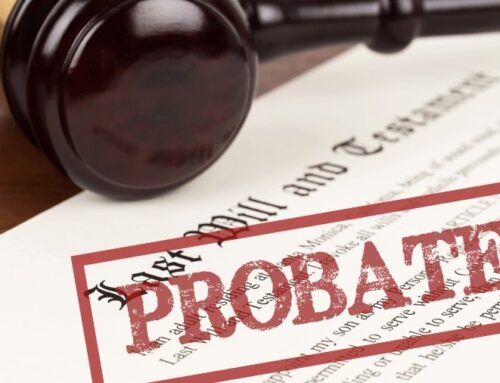Navigating the probate sale process can be challenging, especially for those grieving the loss of a loved one. One crucial aspect of managing a probate sale is enlisting the help of an experienced estate agent. This blog explores the essential role estate agents play in probate sales, ensuring a smoother and more efficient transaction for both executors and buyers. Check this blog for more info “The impact of state laws on probate sales“.
What is a Probate Sale?
A probate sale occurs when a deceased person’s property is sold as part of the probate process. This process involves distributing the deceased’s assets according to their will (if one exists) or state law (if there’s no will). Selling real estate during probate can be complex due to legal requirements, potential disputes among heirs, and the need for court approval. An estate agent can provide invaluable assistance in navigating these challenges.
The Role of an Estate Agent in Probate Sales
1. Understanding the Legal Framework
One of the primary roles of an estate agent in probate sales is to understand the legal framework surrounding the sale. They help executors comply with probate laws and requirements, ensuring that all necessary documentation is in order and that the sale adheres to local regulations.
2. Providing a Property Valuation
An estate agent will conduct a thorough market analysis to determine the fair market value of the property. This is crucial not only for pricing the property correctly but also for satisfying court requirements. An accurate valuation helps in attracting potential buyers while maximizing the proceeds for the estate.
3. Marketing the Property
Effective marketing is vital for a successful probate sale. Estate agents leverage various marketing strategies to promote the property, including:
- Online Listings: Utilizing popular real estate websites and social media platforms to reach a broad audience.
- Professional Photography: Providing high-quality images to showcase the property’s best features.
- Open Houses: Organizing showings and open houses to attract potential buyers.
4. Navigating the Sale Process
The estate agent guides executors through the entire sale process, from listing the property to negotiating offers. They handle communications with potential buyers and their agents, providing feedback and advice to ensure the best outcome for the estate.
5. Coordinating Court Approvals
In many cases, the sale of a probate property requires court approval. An experienced estate agent understands the process for obtaining this approval and can assist the executor in preparing the necessary documentation and presenting it to the court. This helps streamline the sale process and minimize delays.
6. Managing Offers and Negotiations
When offers come in, the estate agent reviews them with the executor, discussing the pros and cons of each. They negotiate terms on behalf of the estate, ensuring that the sale is conducted fairly and that the best interests of the estate are prioritized.
7. Facilitating Closing
Once an offer is accepted and court approval is obtained, the estate agent facilitates the closing process. This includes coordinating with attorneys, title companies, and other professionals involved in the transaction, ensuring all paperwork is complete and the sale proceeds smoothly.
Conclusion
The role of an estate agent in probate sales is invaluable, providing expertise and guidance during a challenging time. From understanding legal requirements to marketing the property and facilitating negotiations, an experienced estate agent can help executors navigate the complexities of the probate process, ultimately leading to a successful sale.
By choosing the right estate agent, executors can ease their burden and ensure the property is sold efficiently, maximizing the value for the estate and its beneficiaries.
FAQs
Q: Do I need an estate agent for a probate sale?
A: While it’s not legally required, hiring an experienced estate agent can simplify the process and help ensure compliance with legal requirements.
Q: How do I choose the right estate agent for a probate sale?
A: Look for agents with experience in probate sales, strong communication skills, and a proven track record in your local market.
Q: Can the estate agent assist with court approval?
A: Yes, an experienced estate agent can help prepare the necessary documentation and guide you through the court approval process.
Q: Are probate properties sold as-is?
A: Most probate properties are sold as-is, meaning buyers may need to address repairs or renovations after the sale.
Q: How long does a probate sale typically take?
A: The duration can vary, but the process often takes several months due to court approvals and potential negotiations.
By understanding the crucial role of an estate agent in probate sales, executors and beneficiaries can make informed decisions, ensuring a smoother and more efficient sale process during a difficult time.











